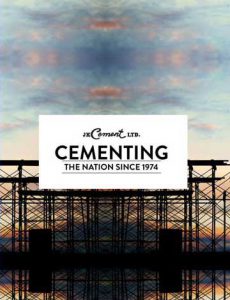Precast concrete is a construction technique that involves casting concrete in reusable molds or forms, followed by controlled curing in a specialized environment. The cured concrete components are then transported to the construction site and positioned accordingly. This method offers numerous advantages over on-site casting, including enhanced material quality and workmanship, as ensured by the precast plant’s monitoring and curing processes. Precast concrete finds applications in both interior and exterior construction projects, ranging from highways, bridges, and high-rises to tilt-up buildings.
Precast concrete refers to the process of casting concrete, which consists of cement, water, aggregates, and admixtures, into specific shapes at a location separate from its final placement. The concrete is carefully poured into forms made of materials like wood, rubber, GRP (glass-reinforced plastic), or steel. After curing, the concrete is removed from the forms, typically the following day, and transported to the construction site for installation.
There are various types of precast concrete forming systems designed for architectural applications, differing in size, function, and cost. Precast architectural panels are commonly used to clad building facades, and create free-standing walls for landscaping, soundproofing, and security purposes. Some precast panels are even constructed using pre-stressed concrete, adding structural strength.
The use of JK White Cement allows for the incorporation of different colours and sizes of aggregates, resulting in unique aesthetic variations. The shape and surface of precast concrete molds also influence the final appearance, with options including timber, steel, plastic, rubber, or fibreglass molds, each providing a distinct finish.
Utilizing precast concrete offers several advantages, including:
Precast concrete encompasses various types, including:
Pavement Blocks/Pavers/Pavement Bricks: These are used for creating pavements or hard standings. The advantage of using pavers is the ability to lift and replace individual units if needed. Pavers find applications in driveways, pavements, patios, town centres, and road surfacing. JK White Cement, renowned for its strength and brilliant whiteness, produces durable and vibrant pavers with long-lasting colours.
Precast concrete offers significant advantages over on-site casting, enabling enhanced control over the material quality, workmanship, and construction efficiency. With its versatility and wide range of applications, precast concrete continues to revolutionize.
These precast products offer versatility and provide solutions for various construction needs. Their production involves the utilization of JK White Cement, ensuring high strength, durability, and visually appealing finishes.
In conclusion, JK White Cement is an integral ingredient in numerous precast products that are widely employed in today’s construction industry. Its contribution enhances the strength, durability, and aesthetic appeal of these precast concrete components.
Website